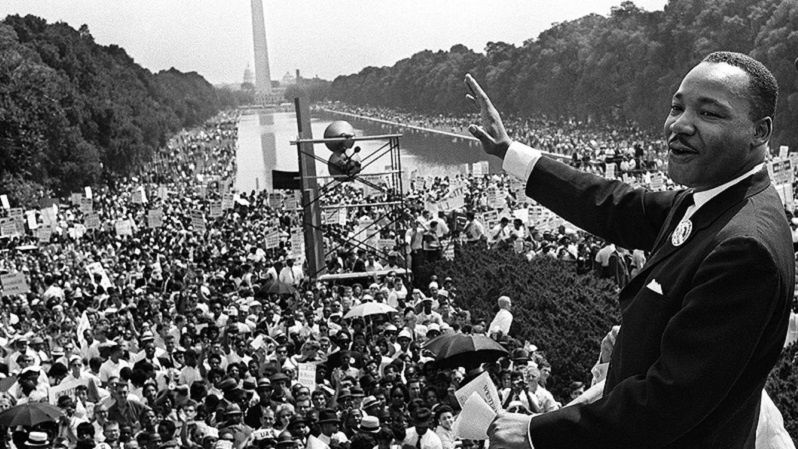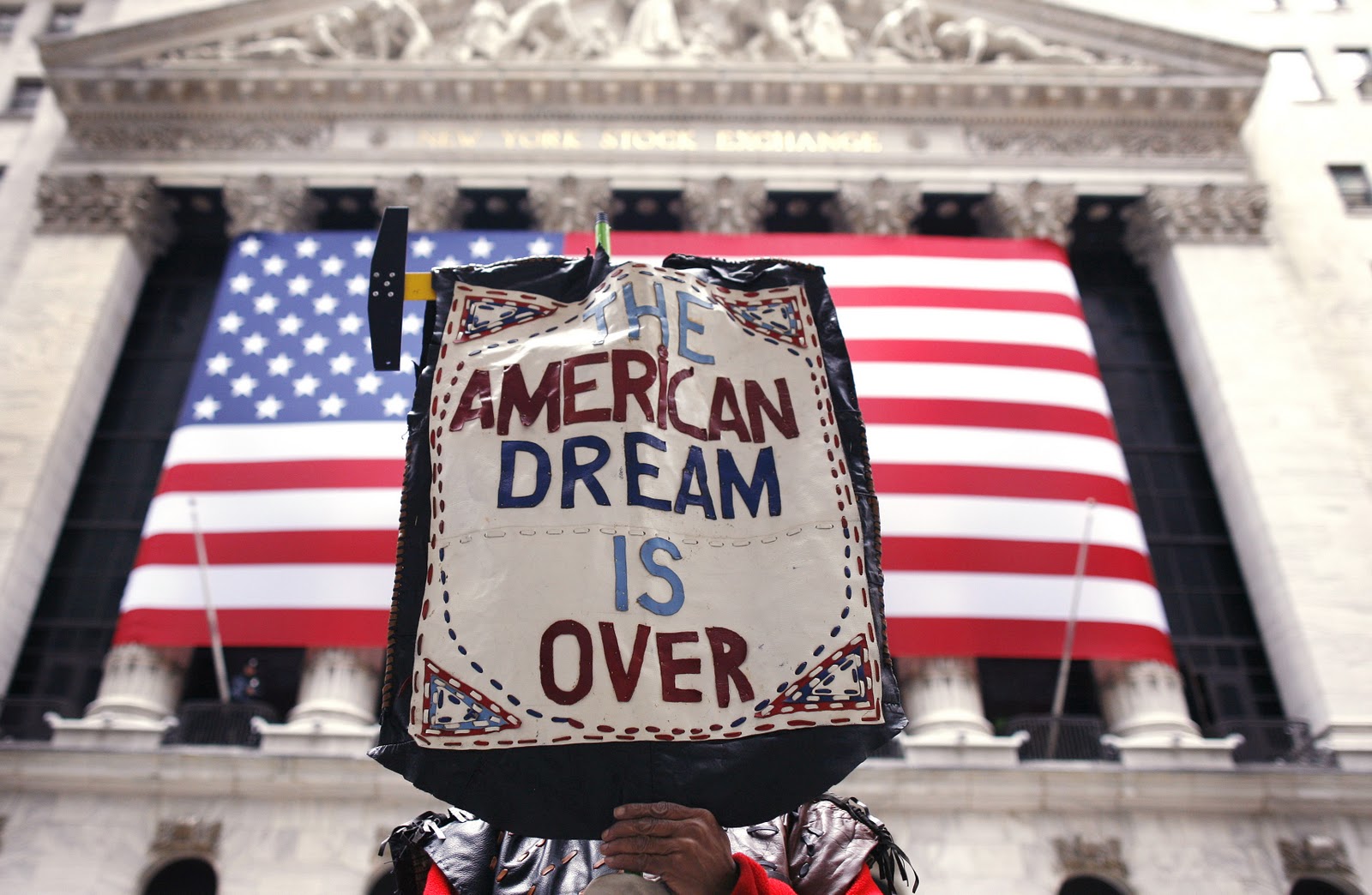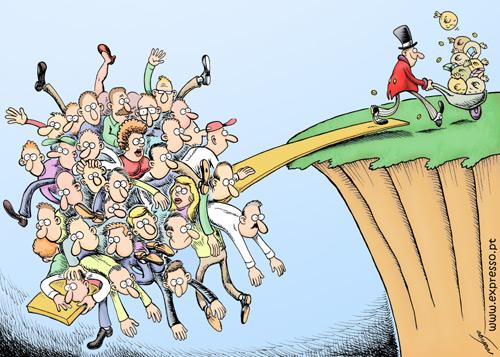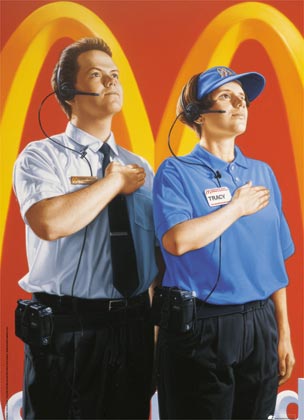At a time when Martin Luther King’s legacy is seeing it’s greatest challenges by a racist backlash from an opportunist, corrupt ruling party, his message resonates more than ever. The intense anger that people like us are experiencing in the face of blatant racism requires the necessity to remain calm, yet resilient and to turn the other cheek for the sake of winning the long game. At the same time, it is about winning those important short term battles, (like the protection of the Dreamers, and pursuing Justice reform) and an actively engaged resistance, that (as Congressman John Lewis mentioned recently) has done its homework, and “studied” to be ready for the challenges that lie ahead.
This is how we never lay down, unless it’s to obstruct. This is how we never give up, even when people like Donald Trump manage to finagle their way to power. This is how we win, restoring our great nation, ‘taking it back’ from those that remember fondly the days when minorities, LGBTQ and women ‘knew their place’. This is our time to fight back, using the playbook of MLK, Ghandi and Jesus.
So, on this MLK day, I am re-posting one of my previous articles from the past, while I was earning my history degree, about the only king I consider truly great.
_______________
The Last Great King
Today we recognize the loss of one of History’s greatest kings. He was not a rich and powerful lord nor a great noble aristocrat, and while he was one of the most devoted fighters of all time, he was no blood thirsty warrior.

Martin Luther King Jr., or MLK has become somewhat of a legend, a myth, a George Washington like figure, with a holiday named after him to boot. It’s easy to forget how truly great this man was. It’s also easy to forget that he was surrounded by a great wife and devoted followers. It’s easy to forget as well that he was not perfect, he made mistakes and despite our 20/20 hindsight, he was a man in jeopardy of losing the support of the very people he laid his life on the line for.
Society seems to forget how brave, how hard and how profound the struggle of MLK actually was. He wasn’t just one of many who stood up to the water cannons, attack dogs and police brutality, he was the symbol OF standing up to those same brutal tactics. He was the figurehead of a movement who’s members had seen oppression of a disgraceful and horrid fashion so ingrained into American society, it was tradition to carry on the lynchings. Seriously! White Southerners would bring the kids to a lynching and even take pictures! Meanwhile, the cities in the North and the West carried on oppression of a different sort, ghettoizing. King knew that he needed to keep fighting on in the spirit of non-violence. He knew that middle-class Whites would not approve of violent protesting. King not only understood the forces his movement was up against, he saw their point of view and that’s a hell of a thing for any man or woman to do. In the spirit of Ghandi and Jesus, King understood the value of turning the other cheek. He basically knew that his White countrymen were not bad people (well not all of them) and sought to show them just how horrible things had become by standing tall and proud amidst great violence. “I AM a man” followers had to remind their White comrades, and let’s be clear that not only did many of these comrades agree, they joined in the struggle. Their help, combined with the valuable contribution by those like Rosa Parks and other souls brave and strong, the movement carried on towards success. Having King in the Driver seat certainly brought the promised land much closer. With his great wife by his side, Coretta Scott King, they fought on against immeasurably difficult odds.
Yet MLK was unfamiliar with the world of the North. The ghettos of Chicago, in particular, broadened his outlook on the vast and complex plight of the African-American people. As the lid of oppression began to be loosened, the pressure began to bubble out in the form of angry protest.
As the rage seeped out, King did all he could to depressurize the situation. He tried hard to align himself with those that called for rapid change. He worked with Stokley Carmichael and other members of the resistance wing, even used the N’ word a few times. He aligned himself with the anti-war movement and skirted the lines of the wildly tumultuous sixties. He fought and fought hard and harder political battles, confrontations in the streets and in the airwaves, rallies that proved peaceful and rallies that turned to violence by mob or, more often than not, by cop. With the nation’s attention all over the map and the Civil Rights Amendment seen as the stopping point by many middle class Americans, King was being hammered on all sides. His victories seemed to push forward in inches, not yards. The establishment media hammered him on the Right, especially after he came out against the war, while the radicals hammered him on the Left. He had new voices to contend with, as Malcolm X came to the foreground and the term “Black Power” came to symbolize a new generation of young African-Americans who grew impatient with the deteriorating conditions of the inner city and the severe injustice they faced every day.
I’ve read that King was having difficulty in handling the immense pressure that was thrust upon him. This is the understatement of 1968. If Jim Morrison of the Doors was on the verge of a nervous breakdown, it’s a wonder that the truly noble Martin Luther King was even able to keep his sanity!
1968
If you’ve never been informed of how revolutionary the year 1968 was, it is perhaps high time you learned. It was the great crossroads of the late 20th Century. It was the point that the Left lost it’s steam and demigods like Nixon and Reagan stepped in to manipulate the confused Center. However it was the beginning of the new Progressive movement, where people of any race, sex or sexual orientation, could be seen as human. It was the birth place of equal rights, despite the fact that the nation may not have been ready for it. The good fight would carry on. There is no doubt about that, despite the fact that most of America would go on to trade its morals for money (certainly not the first time).

WANNA KNOW MORE? Start here: with MLK, RFK, The Vietnam War, opposition to the Vietnam War and the Democratic Convention of 1968.
It was a time when the nation was becoming unhinged. Radicals on the Left AND on the Right, pushed the nation to the brink. The Center was confused, with race, sex, protests and a major paradigm shift creating a culture of social upheaval on all sides Left to the Right. Progressivism was no where to be found. It seemed to die on the Vietnam battlefields of the Ia Drang. President Lyndon B. Johnson’s “Great Society” promised health care and a war on poverty that was left broke after the American Army blew apart the remains of Hue City. Despite Medicare and the surviving, yet vastly de-funded and destroyed Welfare Program, LBJ became known for how many boys he killed in a day, not how many impoverished citizens he helped.
The Progressive spirit, long tapped into by Liberals like FDR (even Reagan, yes you Righties, it’s true, Reagan was an FDR Democrat), was doomed to the manipulative hands of Nixon, who, despite offering a massive health care package (which was rejected by then Democrats) turned his back on both health care (focusing on creating our current HMO system in the model of the Kaiser Steel Corporation, now Kaiser Permanente) and regulatory economics as well. The winds were changing and the rich saw the green light to not only manipulate the Latin American countries, they saw the chance to alter the United States.
The multi-national corporation was growing to adolescence and the U.S. was its spoiling parent. A new day was dawning for the forces on the Right. Southern Democrats like Strom Thurmond defected to the Republican party largely for racial reasons and the future held a massive backlash in store to the Civil Rights and other great movements of the sixties. A selfish era was beginning to close the window of opportunity, so, in retrospect, it is profoundly important that King got as much done as he did, for had he not, a backlash could have kicked in and wiped out the gains.
Just as the nation was spinning out of control and the civil rights movement began to turn against him, King found his voice once again in the form of “economic justice.” He began to take center stage, planned a new march on Washington and broadened his scope to fight for ALL poor people in the United States. The “Poor People’s Campaign” was directed toward the massive injustice that dwelled in America’s inner cities. He called for a massive public works program to rebuild the deteriorating urban centers and provide jobs for a desperate and struggling society. He cited the fact that America spent far more money killing Vietnamese soldiers than it could ever spend on feeding poor families or providing jobs. He headed to Memphis to support a sanitation worker’s strike that fit into this philosophy.
When King arrived in Memphis however, a poorly planned strike turned violent and threatened to destroy his reputation and the interest in the upcoming march on Washington. King headed back on April 3rd, and worked to plan a new protest that WOULD live up to his strongly held belief in non-violence. He had endured attacks on his own life including a stabbing with a letter opener that damn near killed him. Threats were being made on his life on a regular basis. He had fought harder than even the great W.E.B. DuBois and Thurgood Marshall. King had won a Nobel Prize for peace and had the Civil Rights Amendment, a profound task, on his list of achievements. King could have retired a hero, but he chose instead to fight on.
It has been said, by those close to Dr. Martin Luther King, that on the eve of his final speech, King was having doubts about even going to the event. For the sake of humanity, thank the Lord that King found the energy to continue. Had he not, we would never have heard the absolutely wonderful Mountaintop Speech, where King, in an almost prophetic sermon, tells his followers that equality would prevail and carry on without him.
While I love the “I have a Dream” speech, King’s visit to the Mountaintop is still my favorite. It proclaims victory and predicts the future in a light so accurate, that his own sacrifice is placed upon the mantle of humanity in a very humble way. It is perhaps one of the finest moments in speech, period.
The next day, exactly 40 years ago to this day, on April 4th, 1968, King was slain for absolutely pointless reasons by a man so useless I won’t even mention his name. This no name, lowlife thug managed to find his way to London with passport and all, despite a massive manhunt. Oswald didn’t make a mile, this clown found his way to London. It seems common sense to suggest that he had help.
Regardless, King’s death would seal the deal on his legacy. The message of equality would not be defeated, segregation would not return, race as an issue would begin the slow trip toward irrelevance and despite the long road we STILL have in front of us, King’s dream will eventually be realized.
Dr. King gave the ultimate sacrifice for his cause. He devoted his life to humanity and he even lived by example. All the Bible thumpers I’ve seen in my brief time on this Earth, few indeed even attempted to live like Jesus, MLK was not one of them. He understood the microscope that was put on him and sacrificed worldly pleasures to improve the lives of society’s discarded. He needed to, after all, it took Jackie Robinson to desegregate baseball. In other words, few people can truly change history, King can be counted in this elite class.
In that way, King IS nobility.
Pioneer

He is also a TRUE blue Progressive. He was a man of God, a man of socially conservative ideas, however he was not a man of conservative power. He cared not for the Right and certainly identified with ideas that ranged from socialist to liberal. King didn’t understand the point of war and believed we should turn the other cheek when our enemies strike us. Hmmm, I wonder who said that? Dr. King was a man of conviction, of his word and a fighter. He believed in social justice and answered to a higher calling. He understood that Jesus was a man in the trenches and not a defender of Caesar. He agreed with ideologies from the Right to the Left and ultimately identified with a firm belief that humanity will progress.
With this day, underscoring the threats that attempt to diminish Dr. King’s message, we can at the very least take heart in knowing that an African-American man can not only run for President of the United States, he might even win. While it is certainly not the realization of MLK’s dream, it is the beginning.
Dr. Martin Luther King Jr. dreamed of a better world, a world he knew he’d never see with his own eyes. He saw beyond the narrow views of life so trumpeted now by those on the Right. Rugged individualism, unbridled capitalism and look out for #1-ism are not the path of Jesus nor a good and decent human being for that matter. Isn’t it high time we started thinking beyond our own shallow existence and do the same?





